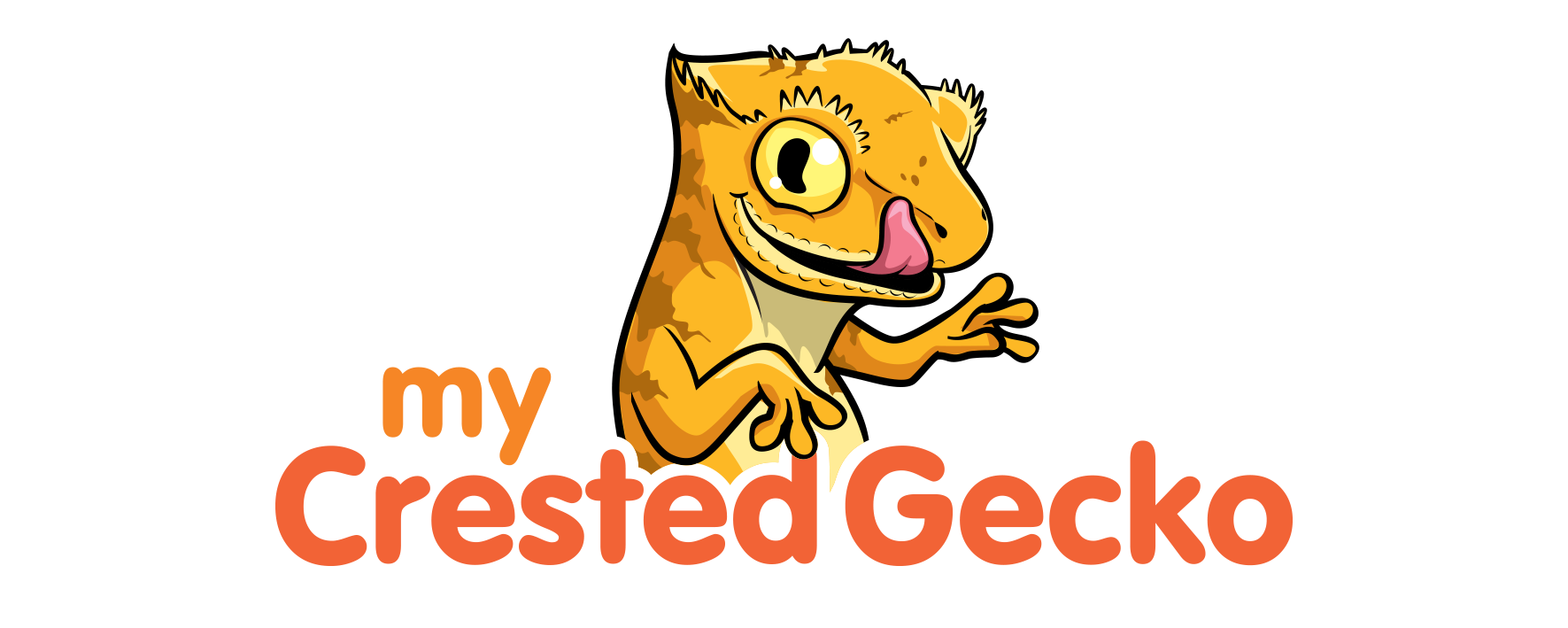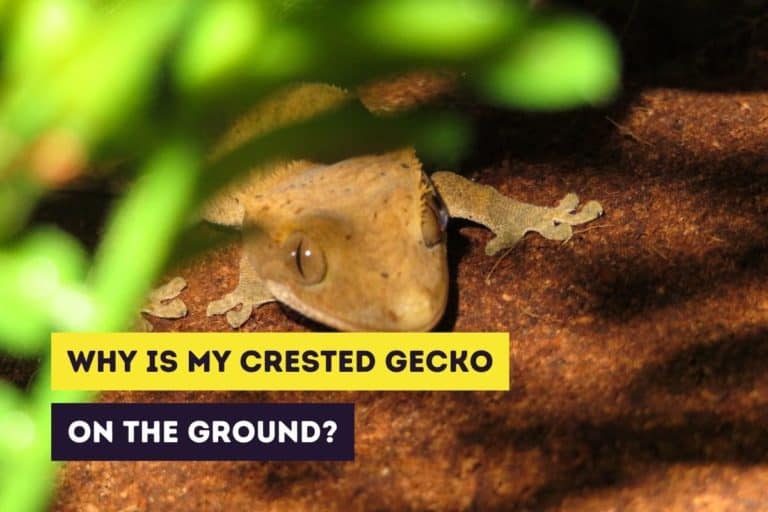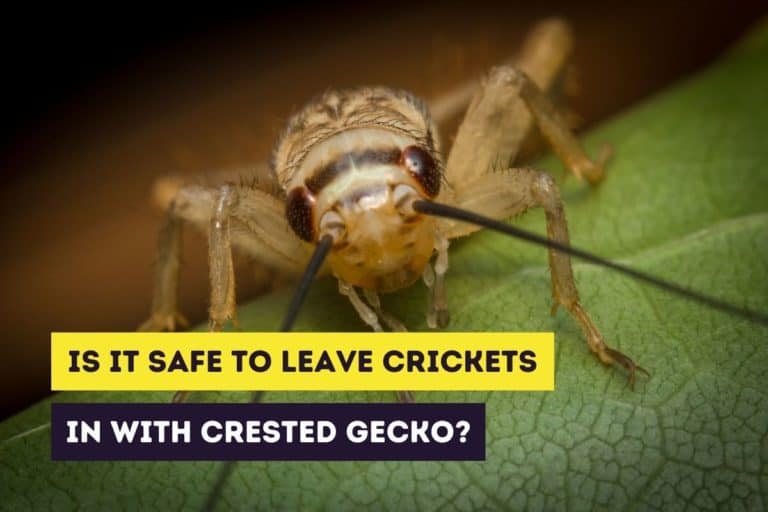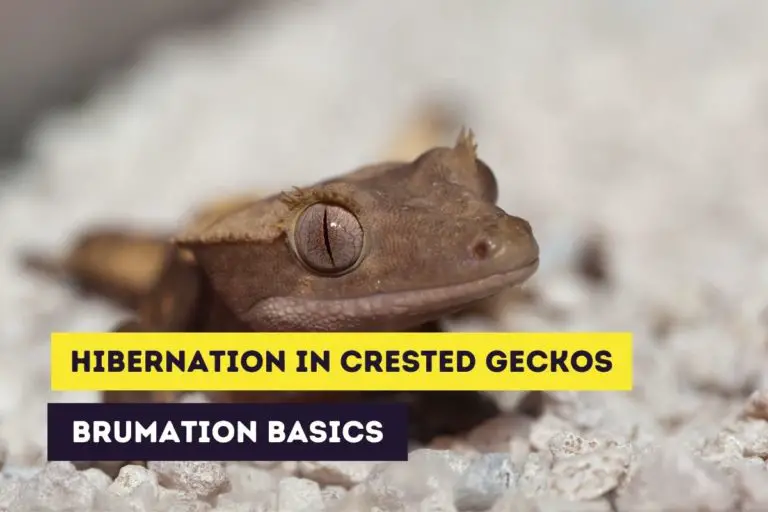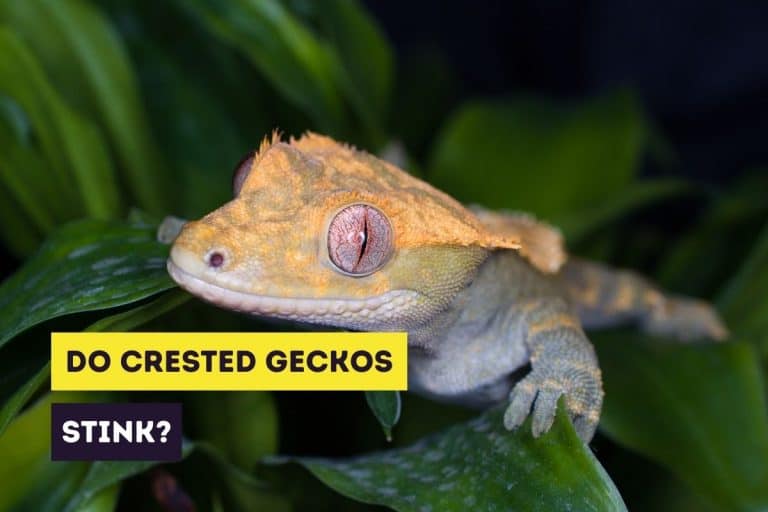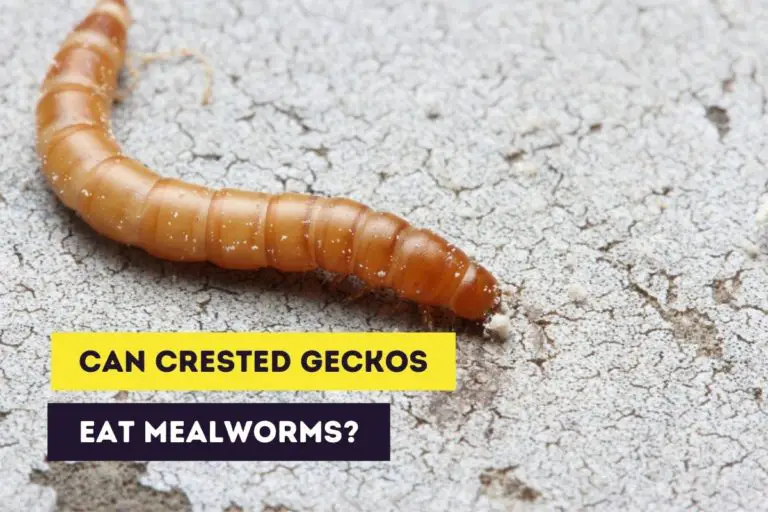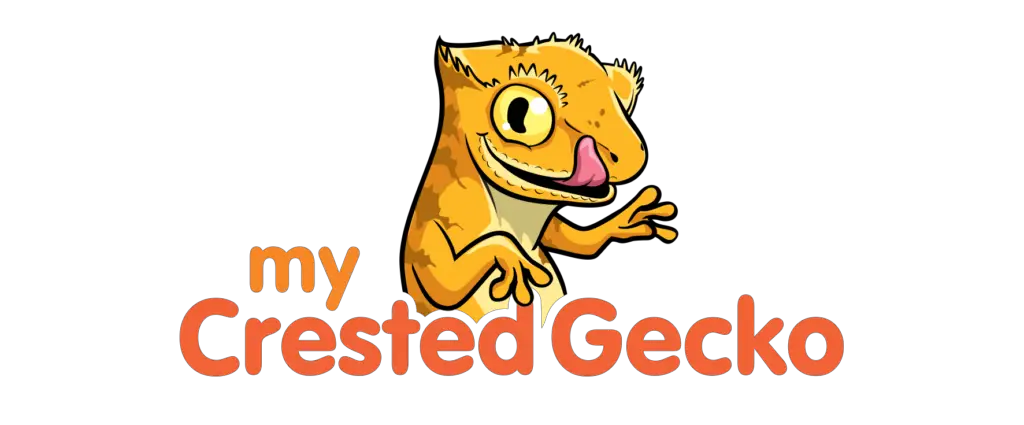Can Crested Geckos Eat Oranges? (Feeding Instructions)
Estimated reading time: 5 minutes
Crested geckos eat fruit and insects in the wild. However, in captivity fruit should only be given in moderation as you can do a lot wrong as a beginner. Citrus fruits can cause an imbalance in the diet of a crested gecko and can even lead to health issues. As you might know, oranges are citrus fruits. But are they really dangerous and should you refrain from giving them?
Crested geckos can eat oranges but should be avoided. Oranges have a good calcium-to-phosphorus ratio but have a higher oxalic acid level. It’s even possible that your crested gecko won’t like to eat oranges.
When you’re new to crested geckos, you want to give a commercial crested gecko diet supplemented with insects. It’s recommended to give fruit, including oranges, only as a treat to your crested gecko. For more experienced users that know what they’re doing fruit can play a more important part in the diet.
If you’re interested in stickers or other products of crested geckos, you can always visit our Etsy Shop, which is called Artful Animalia. We currently only send stickers in the United States. If you’re interested in certain crested gecko-related products, don’t hesitate to contact us.
In this article, you’ll learn a little bit about the nutritional value of oranges and why they’re good or bad for your crested gecko. Finally, you’ll learn how to feed them to your crestie.
This site contains affiliate links to products we recommend and use ourselves. We may receive a commission for purchases that you make through these links. If you’re interested in learning more about our affiliate links, please visit our (affiliate) disclaimer.
Nutritional Value of Oranges
Oranges are citrus fruits and are actually a hybrid of two other types of citrus fruits, the pomelo, and the mandarin. Oranges are widely available and grow mostly in tropical and subtropical climates. They can be eaten fresh, dried, or processed.
The following nutritional data comes from FoodData Central:
| Name | Amount | Unit |
|---|---|---|
| Water | 86.75 | g |
| Energy | 47 | kcal |
| Protein | 0.94 | g |
| Total lipid (fat) | 0.12 | g |
| Carbohydrate, by difference | 11.75 | g |
| Fiber, total dietary | 2.4 | g |
| Sugars, total including NLEA | 9.35 | g |
| Calcium, Ca | 40 | mg |
| Iron, Fe | 0.1 | mg |
| Magnesium, Mg | 10 | mg |
| Phosphorus, P | 14 | mg |
| Potassium, K | 181 | mg |
| Sodium, Na | 0 | mg |
| Zinc, Zn | 0.07 | mg |
| Copper, Cu | 0.045 | mg |
| Selenium, Se | 0.5 | µg |
| Vitamin C, total ascorbic acid | 53.2 | mg |
| Thiamin | 0.087 | mg |
| Riboflavin | 0.04 | mg |
| Niacin | 0.282 | mg |
| Vitamin B-6 | 0.06 | mg |
| Folate, total | 30 | µg |
| Folic acid | 0 | µg |
| Folate, food | 30 | µg |
| Folate, DFE | 30 | µg |
| Choline, total | 8.4 | mg |
| Vitamin B-12 | 0 | µg |
| Vitamin A, RAE | 11 | µg |
| Retinol | 0 | µg |
| Carotene, beta | 71 | µg |
| Carotene, alpha | 11 | µg |
| Cryptoxanthin, beta | 116 | µg |
| Lycopene | 0 | µg |
| Lutein + zeaxanthin | 129 | µg |
| Vitamin E (alpha-tocopherol) | 0.18 | mg |
| Vitamin E, added | 0 | mg |
| Vitamin D (D2 + D3) | 0 | µg |
| Vitamin K (phylloquinone) | 0 | µg |
| Fatty acids, total saturated | 0.015 | g |
| Fatty acids, total monounsaturated | 0.023 | g |
| Fatty acids, total polyunsaturated | 0.025 | g |
Are Oranges Good or Bad for Crested Geckos?
To determine whether oranges are good or bad for crested geckos we need to take a look at two important nutrient levels:
- the calcium-to-phosphorus ratio (Ca:P ratio)
- the level of oxalic acid
Ca:P ratio of oranges
Introduction to Ca:P ratio
Crested geckos need calcium to stay healthy and to prevent the development of a specific disease called metabolic bone disease. Gravid females, hatchlings, and juveniles have a special need for calcium because they need the calcium to grow and to form eggshells (in the case of gravid females).
Calcium and phosphorus have a special relationship. When the calcium levels raise the phosphate levels are lowered and when the phosphate levels rise, the calcium levels drop. This means that, for crested geckos, foods should contain a lower amount of phosphorus than calcium.
A widely used tool to determine if a food is suitable for crested geckos is the calcium to phosphorus ratio. The Ca:P ratio can be described as a percentage but is more often described in terms of [number]:1 or 1:[number], where 1 is the mineral that’s the lowest of the two. To calculate the calcium to phosphorus ratio this way you’ll need to bring back the lowest number to 1. So, the ratio is calculated by dividing the largest number by the lowest number.
Research has shown that good calcium to phosphorus ratio (Ca:P) is between 1:1 and 2:1. For crested geckos, it’s recommended to have a calcium to phosphorus ratio of 2:1 or better.
Calculating the Ca:P ratio
| Nutrient | Amount | Calculations |
|---|---|---|
| Calcium | 40 mg | 40/14=2.86 |
| Phosphorus | 14 mg | 14/14=1 |
| Ca:P ratio | 2.9:1 |
So, the Ca:P ratio of oranges is 2.9:1, which is very good for fruit since most fruits have a bad Ca:P ratio.
Oxalic acid in oranges
Introduction to oxalic acids
Oxalic acid is a compound that’s found naturally in living organisms such as vegetables and fruits. It can be sometimes tasted in food when the amount of oxalic acid is very high. Textbook examples of plants that have a level of high oxalic acid are rhubarbs, star fruits, and spinach.
Oxalic acid is associated with the inhibition of calcium and the formation of kidney stones in humans. Crested geckos also need to avoid eating food that has a high level of oxalic acid. The compound will be bound with minerals such as magnesium and calcium and form oxalates (tiny rectangular crystals).
Since calcium is essential for crested geckos, it’s recommended to stay away from foods that have a medium level of oxalic acid and to avoid foods with a high level of oxalic acid altogether.
Oxalic acid level of oranges
Oranges have a medium level of oxalic acid. Research has indicated that oranges contain 6.2 mg oxalic acid per 100 g. Compared to rhubarb, which has about 600 mg per 100 g, oranges don’t contain a lot of oxalic acids. An orange peel itself is considered to have a high level of oxalic acid.
Feeding Oranges to Crested Geckos
If you don’t want to risk harming the health of your crested gecko you should avoid giving citrus fruits such as oranges. Although there are far worse food choices to give, oranges aren’t a recommended food. It’s better to create a varied menu of fruit and make a fruit puree with safer fruits.
Want to Learn More?
If you want to learn more about crested geckos as pets, please read the following articles.
If you’re interested in getting crested geckos as pets you should also definitely read our article about baby and juvenile crested gecko care or (adult) crested gecko care.
